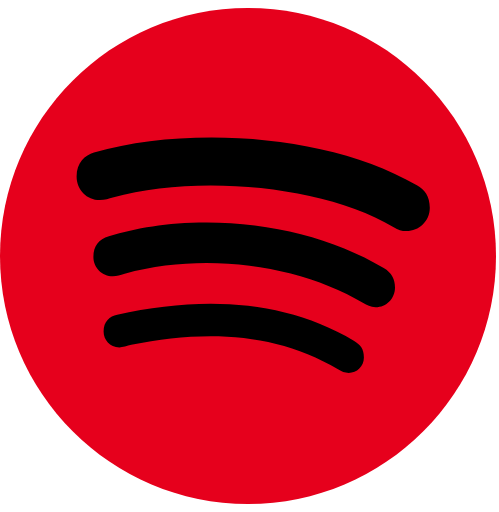BREAKING NEWS: MELATONIN AND DECREASE COVID-19 RISK
Just days after Dr. Lefavi submitted this article, Team Labrada became aware of a study report on melatonin use and a decreased risk of COVID-19. Just published in the November 6,2020 issue of the Journal of PLOS Biology, researchers evaluated patient data from the Cleveland Clinics COVID-19 registry and found that the patients who used melatonin supplements with some regularity were 28% less likely to test positive for COVID-19. It was also found that melatonin usage correlated with a 52% decrease in the likelihood of testing positive for COVID-19 in Aftrican-Americans after adjusting for age, race, smoking history, and various disease co-morbidities. While difficult to discern between correlation and causation, it is clear that further studies are needed. This study may have identified melatonin use both as a predictor of COVID-19 risk, as well as a possible preventative factor.
– Team Labrada
If you are one of the approximately 50–70 million Americans affected by poor sleep patterns, then you know the consequences of not getting enough z’s. You may experience low energy levels and reduced productivity, not to mention an increased risk of high blood pressure and diabetes, associated with inadequate sleep.
And perhaps you’ve tried everything from counting sheep to the occasional narcotics, all to no avail. It may be time to give your body’s own natural solution a try.
You see, the small pineal gland in your brain secretes a hormone called melatonin. This hormone is often called the “sleep hormone” and tells your body when it’s time to hit the sack. High levels of melatonin help you fall asleep; low levels can cause insomnia. Interested in getting better sleep, among other benefits? Read on.
What Does Melatonin Do?
Melatonin, a powerful antioxidant commonly available in supplement form, appears to have effects that assist in the following circumstances:
• Poor Sleep. Melatonin supplements are popular among people who suffer from insomnia or jet lag precisely because this hormone works with your body’s own circadian rhythms – its internal clock – monitoring sleep and eating patterns. Melatonin levels begin to rise when it gets dark outside, signaling your body that it’s time to sleep. Perhaps you have even sensed that lately with the recent time change.
While no one knows exactly how melatonin works to enhance sleep, it is believed that this hormone binds to receptors in the brain to help reduce nerve activity. One hormone in the brain melatonin appears to interfere with is dopamine, a hormone that helps you stay awake.
Low melatonin levels at night, therefore, negatively affect sleep. Stress, smoking, not getting enough natural light during the day, getting too much light at night (be careful about being on a computer late a night), and shift work all affect melatonin levels.
But, melatonin does much more than enhance sleep. Here are some other benefits of melatonin supplementation.
• Melatonin may increase human growth hormone levels in men. Yes, this is one your body’s natural anti-aging supplements.
• Melatonin also helps regulate your blood pressure, body temperature and the levels of other hormones.
• Melatonin has been shown to positively affect eye health, such as a possible reduced risk of macular degeneration.
• Those who suffer from Tinnitus have found relief from symptoms with melatonin supplementation.
How Much Should I Take?
Most studies have used between 0.5 mg and 5 mg melatonin. It is best to try a variety of dosages to see which is right for you, but it is possible to provide some general recommendations based on your goals.
For Better Sleep
For insomnia, 2 mg to 3 mg of melatonin before bedtime has been shown to be effective in many studies. Higher doses of up to 12 mg daily have also been used for short periods of time (one month).
An analysis of multiple studies showed that melatonin helped people fall asleep faster. But, more importantly, the subjects in these studies said their quality of sleep increased significantly.
For Jet Lag
There is nothing worse than being in a new time zone and staring at the ceiling all night. Crossing time zones gets your internal clock out of synch. Interestingly, shift workers often describe their symptoms as a kind of jet lag when they attempt to work at night and sleep during the day.
Melatonin has consistently been shown to help reduce jet lag by syncing your internal clock with the time change. Interestingly, most research suggest that even the lowest dosage – 0.5 mg – is as effective as higher dosages (up to 5 mg) at reducing the effects of jet lag. When analyzing multiple studies, researchers concluded that melatonin was highly effective at mitigating the negative effects of traveling through five or more time zones.
For Human Growth Hormone Release
If you know much about this potent anabolic agent, then you would not be surprised that it’s affected by melatonin. After all, human growth hormone (HGH) is naturally released during sleep.
Here’s how melatonin works to help spike HGH. Melatonin makes the pituitary gland – the gland that secretes HGH) – more sensitive to and responsive to Growth Hormone Releasing Hormone (GHRH). That means more HGH gets released. Studies in healthy men have shown that taking melatonin has increased HGH levels. This is key given the fact that HGH decreases with age. That’s why melatonin supplementation may be a natural way to reduce the effects of aging.
The optimal dosage for anti-aging is 2-3 mg. However, if you are also resistance training, the optimal dosage increases to 5 mg. One study showed that this latter dosage, when taken in conjunction with weight training, increased levels of HGH while decreasing levels of the hormone that counteracts HGH.
Please Let Us Know If You Enjoyed This Article.
Your Feedback Is Important To Us
Disclaimer: This content is for informational purposes only and is not meant as medical advice, nor is it to diagnose or treat any medical condition. Please consult your physician before starting or changing your diet or exercise program. Any use of this information is at the sole discretion and responsibility of the user.













